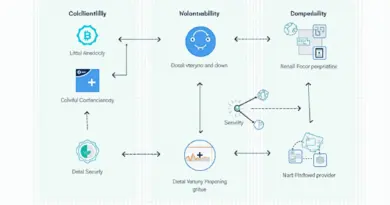Litecoin vs Bitcoin Speed: Which is Faster?
Litecoin vs Bitcoin Speed: Which is Faster?
When it comes to cryptocurrency, one of the most pressing concerns for users is transaction speed. The debate surrounding Litecoin vs Bitcoin speed has gained momentum as more individuals and businesses consider the practicality of adopting these digital currencies. This article delves into the differences between Litecoin and Bitcoin, exploring their transaction capabilities and offering insights for potential users.
Pain Points in Cryptocurrency Transactions
Imagine being a merchant who accepts Bitcoin payments but faces long waiting periods for transaction confirmations. Many users have voiced similar frustrations, leading to the exploration of alternatives like Litecoin. The increasing demand for efficient transaction processing time has prompted questions about which cryptocurrency is better suited for everyday use. Users often complain about transaction delays and high fees, but are they aware of how Litecoin could alleviate these issues?
In-Depth Analysis: Litecoin vs Bitcoin Speed
To understand the differences better, let’s analyze the unique attributes of both cryptocurrencies through their technical aspects.

1. **Block Time**: The average block time for Bitcoin is 10 minutes, whereas Litecoin boasts a block time of just 2.5 minutes. This means Litecoin can confirm transactions significantly faster than Bitcoin.
2. **Transactions per Second (TPS)**: Bitcoin can handle about 7 TPS, whereas Litecoin can manage approximately 56 TPS. This highlights how Litecoin’s capacity can effectively accommodate a higher volume of transactions.
3. **Transaction Fees**: Typically, Bitcoin’s fees can soar when the network is congested, often costing users more than $2 per transaction. In contrast, Litecoin usually maintains lower fees, averaging around $0.10 per transaction.
| Parameter | Litecoin | Bitcoin |
|---|---|---|
| Speed | Faster (2.5 minutes) | Slower (10 minutes) |
| Costs | Lower Fees (avg. $0.10) | Higher Fees (avg. $2+) |
| Use Case | Microtransactions & Retail | Investment & Store of Value |
According to a 2025 report by Chainalysis, the transaction capabilities of Litecoin are anticipated to surpass Bitcoin in volume due to its improved speed and efficiency. This further emphasizes the importance of evaluating transaction time when choosing a cryptocurrency.
Risk Warnings
While speed is an essential factor, there are specific risks associated with using both Litecoin and Bitcoin. It is crucial to stay informed about potential security vulnerabilities within both networks. Users should regularly update wallets and be vigilant around phishing attacks. Always consider a multi-signature verification setup to enhance security for transactions.
At cryptonewssources, we consistently provide insights into such critical updates and best practices of cryptocurrency management.
Conclusion
In summary, the Litecoin vs Bitcoin speed debate tilts in favor of Litecoin for those seeking quicker and more cost-effective transactions. With its superior transaction speed, lower fees, and growing acceptance across various retail platforms, Litecoin emerges as a practical alternative for everyday transactions.
FAQs
Q: Is Litecoin more suitable for daily transactions than Bitcoin?
A: Yes, due to its faster speed and lower transaction fees, Litecoin is often preferred for daily transactions compared to Bitcoin.
Q: How does the transaction fee of Litecoin compare to Bitcoin?
A: Litecoin generally has much lower transaction fees than Bitcoin, making it a more economical option for users.
Q: What makes Litecoin faster than Bitcoin?
A: Litecoin’s faster block generation time of 2.5 minutes allows for quicker transaction confirmations compared to Bitcoin’s 10-minute average.
By: Dr. Alexander Wright, Blockchain Expert and Author of over 30 papers in cryptocurrency technology.



